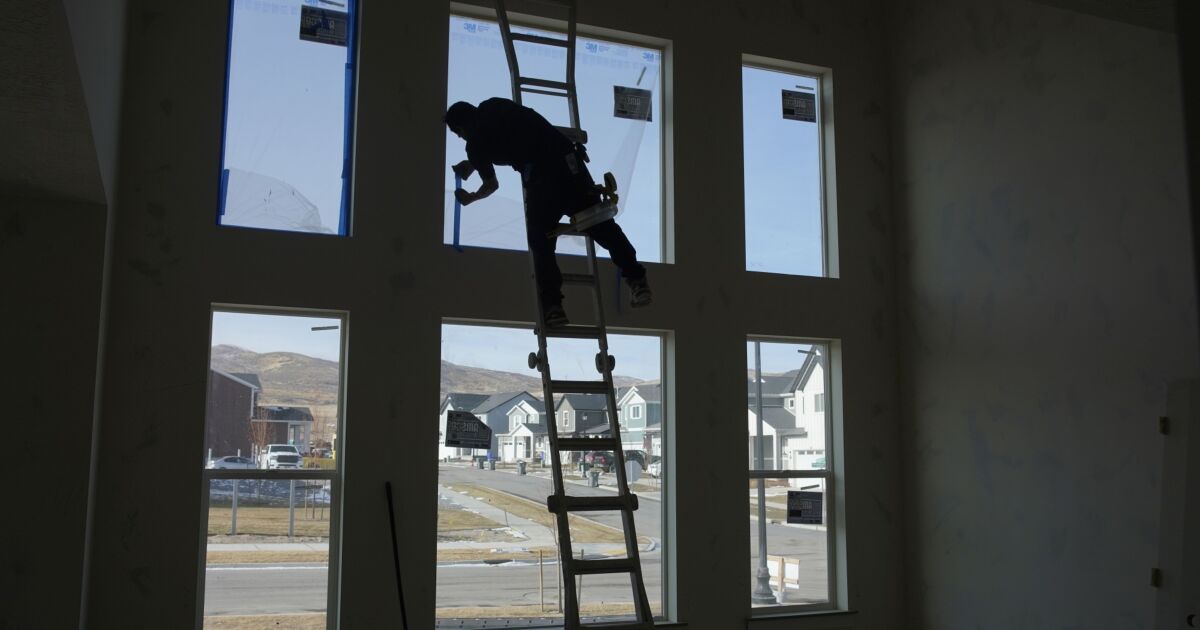
New-home mortgage applications surged
Interest in new constructions has pushed annual growth in applications above 20% over the past three months. Volumes increased 22.2% in December, comparable to a 21.8% rise the prior month. In October applications leaped by an even higher 39.7% on an annual basis, according to MBA's monthly survey, which measures activity among mortgage lending subsidiaries of homebuilding companies.
December numbers marked a significant turnaround from a year earlier when applications dipped 25.2% annually in the final month of 2022. They also represent a stark contrast from purchase-lending activity for existing properties, which
"The low level of existing homes for sale continues to divert prospective buyers to newly built homes," said Joel Kan, MBA vice president and deputy chief economist, in a press release.
But reflective of seasonal patterns, December applications slowed month to month. "Compared to November 2023, applications were down 4% on a non-seasonally adjusted basis, consistent with December declines for the past two years," Kan said.
MBA determined approximately 46,000 new-home sales took place in December, a 6.1% decline from November's 49,000. With the monthly changes, the trade group estimates that seasonally adjusted new-home sales are running at a rate of 599,000 units per year, falling 11.5% off November's pace of 677,000.
Recent slowing notwithstanding, the interest in new constructions marks a turnaround for the building industry over the past 12 months, with expectations of greater future sales to come in the near term, according to
Single-family construction permits, a sign of potential future activity,
In a reversal of fall trends, though, data in MBA's builder survey showed a slight shift in composition among borrower types in December. The share of Federal Housing Administration-guaranteed loans, which are typically used by first-time buyers to finance purchases in the affordable end of the market, shrank for the first time in four months. After growing to a record 27.1% in November, the share of FHA-backed loans retreated two percentage points to 25.1% last month.
Still, December's mark showed how homebuilders were able to make greater inroads in FHA borrowing in 2023, with last month's percentage up from 20% a year earlier.
In contrast to FHA numbers, December new-home applications in the conventional market grew to 64.5% of overall volume, compared to 62.9% the previous month.
The portion of loans coming through other federally sponsored programs managed to eke out increases. Department of Veterans Affairs-guaranteed applications made up 9.9% relative to total volume, up from 9.7% a month earlier. Loans coming through the U.S. Department of Agriculture's Rural Housing Service represented 0.5%, compared to November's 0.3%.
With a greater share of higher-balance conventional loans, the average loan size last month for newly constructed units accelerated 3.9% on a monthly basis in December to $405,368 from $390,049.



